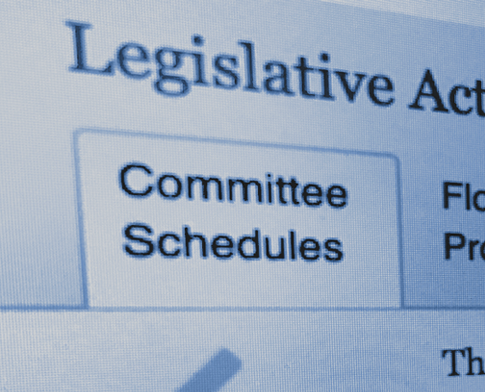Tax Update (June 24)
| Tax Extenders Package
On Thursday (June 20), the House Ways and Means Committee held a markup of four tax bills. The markup included several provisions: expansions of tax credits for lower-income workers and families with children, and renewals of expired tax breaks for disparate interests which ranged from biodiesel blenders to craft beer producers. The Committee first moved forward with The Promoting Respect for Individuals’ Dignity and Equality (PRIDE) Act of 2019. The bill passed in a voice vote and would “clarify that all provisions shall apply to legally married same-sex couples in the same manner as other married couples.”[1] The committee then moved The Economic Mobility Act of 2019, which would expand the Earned Income Tax Credit particularly for childless adults, while making the Child Tax Credit fully refundable and expanding a break for dependent care.[2] It would also increase the Child Tax Credit for young children by $1,000. It also temporarily increases the maximum credit to $3,000 from $2,000 for children under the age four for 2019 and 2020. The act is estimated to cost around $29.5 billion.[3] After minimal debate, the panel voted 22-19 to pass the proposal by Chairman Richard Neal (D-MA). Neal’s proposal to make the Child Tax Credit fully refundable would cost $50.7 billion, according to the Joint Committee on Taxation. Ultimately, Rep. Lloyd Doggett (D-TX), Rep. Ron Kind (D-WI), and Rep. Stephanie Murphy (D-FL) all voted against the provisions because they were not offset. The underlying tax extenders bill, The Taxpayer Certainty and Disaster Tax Relief Act of 2019 included several provisions that needed extending after expiring at the end of 2017 and 2018. Some provisions included benefiting the renewable energy industry, energy efficiency (sections 179D, 25C, and others), providing employers with a tax credit for paid family leave, and reducing the alcohol excise taxes. Throughout the markup, Republicans vehemently disagreed with many of the provisions Democrats tried to attach to the bill. To counter, Republicans tried to attach several amendments to force split votes amongst Democrats. Those amendments included a repeal of the medical device tax and the “Cadillac Tax” for high priced health insurance programs. Republicans did not include an amendment on the health insurance tax (HIT) because both parties did not want to kill attempts of a compromise. The legislation passed in a party-line vote, 25-17. The legislation is expected to be a starting point between the House and Senate; both chambers want to pass an extenders package before the end of the year. Chairman Neal’s tax plans would cost an estimated $106.6 billion. The provisions outside the scope of the base tax extenders bill are likely a non-starter in the Senate. Senate Finance Chairman Chuck Grassley (R-IA) thinks Chairman Neal has it “backwards,” as Congress historically not offset tax extenders, but should find pay-fors if it wants to expand refundable credits.
The Department of Treasury is still debating how to handle the two sets of proposed regulations from the Tax Cuts and Jobs Act (TCJA) Opportunity Zone tax breaks. The second set of regulations (REG-120186-18) includes alterations to the first set (REG-115420-18) and the decision on whether to fuse the two batches of regulations remains undecided. However, Bryan Rimmke of Treasury’s Office of Tax Policy said Wednesday that the department currently has no plans for a third round of regulations on the TCJA’s Opportunity Zone program.[4] The Joint Committee on Taxation put out an Opportunity Zone overview on Wednesday and a public hearing on Opportunity Zone Guidance is set for July 9.
Treasury and the IRS issued a notice of proposed rulemaking containing the following: (1) proposed regulations that provide guidance to cooperatives to which sections 1381 through 1388 of the Internal Revenue Code apply and their patrons regarding the deduction for qualified business income (QBI) under section 199A(a); and (2) guidance to specified agricultural or horticultural cooperatives and their patrons regarding the deduction for domestic production activities under section 199A(g). Additionally, proposed regulations also include a single definition of patronage and nonpatronage under section 1388 of the Code and would remove final regulations and withdraw proposed regulations that have not yet been finalized under the former section 199. Regulations would affect Cooperatives and patrons that are individuals, partnerships, S corporations, trusts, and estates engaged in domestic trades or businesses. [5] Notice 2019-27 contains a proposed revenue procedure that provides guidance on methods for calculating W-2 wages for purposes of section 199A(g) and proposed §§1.199A-8 through 1.199A-12, which are contained in the notice of proposed rulemaking described above. The Notice indicates three methods of calculating W-2 wages for the section 199A(g)(1)(B)(i) due to possible changes regarding the underlying Form W-2.[6]
US Trade Representative (USTR) Robert Lighthizer warned France against enacting their proposal for a digital service tax while testifying before the House Ways and Means Committee on Wednesday (June 19). The French proposal would put a 3 percent tax on revenues of companies with more than 750 million Euros worldwide. The majority of the 30 companies potentially impacted by the tax are American-based companies. Lighthizer said he believes President Trump would react with strong retaliatory measures should France, or the EU, move forward with digital service tax.[7] The US could challenge the tax as discriminatory at the World Trade Organization (WTO) or issue Section 301 tariffs under the US Trade Act in response. [8] The French proposal comes ahead of the G20 Summit next week in Osaka, Japan, where taxation of the digital economy is expected to be heavily debated.
[1] Brian Faler, “Ways and Means votes to scrub gendered references to marriage from tax code.” Politico Pro, 06/20/2019. https://subscriber.politicopro.com/article/2019/06/ways-and-means-votes-to-scrub-gendered-references-to-marriage-from-tax-code-3463757 [2] Brian Faler, “Ways and Means approves $130B package of tax bills” Politico Pro, 06/20/2019. https://subscriber.politicopro.com/article/2019/06/ways-and-means-approves-130-billion-package-of-tax-bills-1548665 [3] Brian Faler, “Ways and Means approves $130B package of tax bills” Politico Pro, 06/20/2019. https://subscriber.politicopro.com/article/2019/06/ways-and-means-approves-130-billion-package-of-tax-bills-1548665 [4] Lydia O’Neal “Treasury Still Weighing Options on Opportunity Zone Guidance” Bloomberg Tax, 06/19/2019 https://news.bloombergtax.com/daily-tax-report/treasury-still-weighing-options-on-opportunity-zone-guidance [5] Department of Treasury, International Revenue Service “Section 199A Rules for Cooperatives and thier Patrons”, Federal Register, 06/19/2019 https://s3.amazonaws.com/public-inspection.federalregister.gov/2019-11501.pdf [6]Internal Revenue Service “Notice 2019-27 Methods for Calculating W-2 Wages for Purposes of Section 199A(g) https://www.irs.gov/pub/irs-drop/n-19-27.pdf [7]Doug Palmer “Lighthizer warns France against adopting digital services tax” Politico Pro, 06/19/2019 https://subscriber.politicopro.com/article/2019/06/lighthizer-warns-france-against-adopting-digital-services-tax-3455595 [8] Gary Clyde Hufbauer “France Threatens a Digital Tax: Will the US Retaliate?” Peterson Institute for International Economics, 04/15/2019 https://piie.com/blogs/trade-investment-policy-watch/france-threatens-digital-tax-will-us-retaliate |
HOUSE.GOV
The Week Ahead
For the main events of the next week and more, go straight to the key events on the house.gov website.
SENATE.GOV
The Week Ahead
For the main events of the next week and more, go straight to the key events on the senate.gov website.


